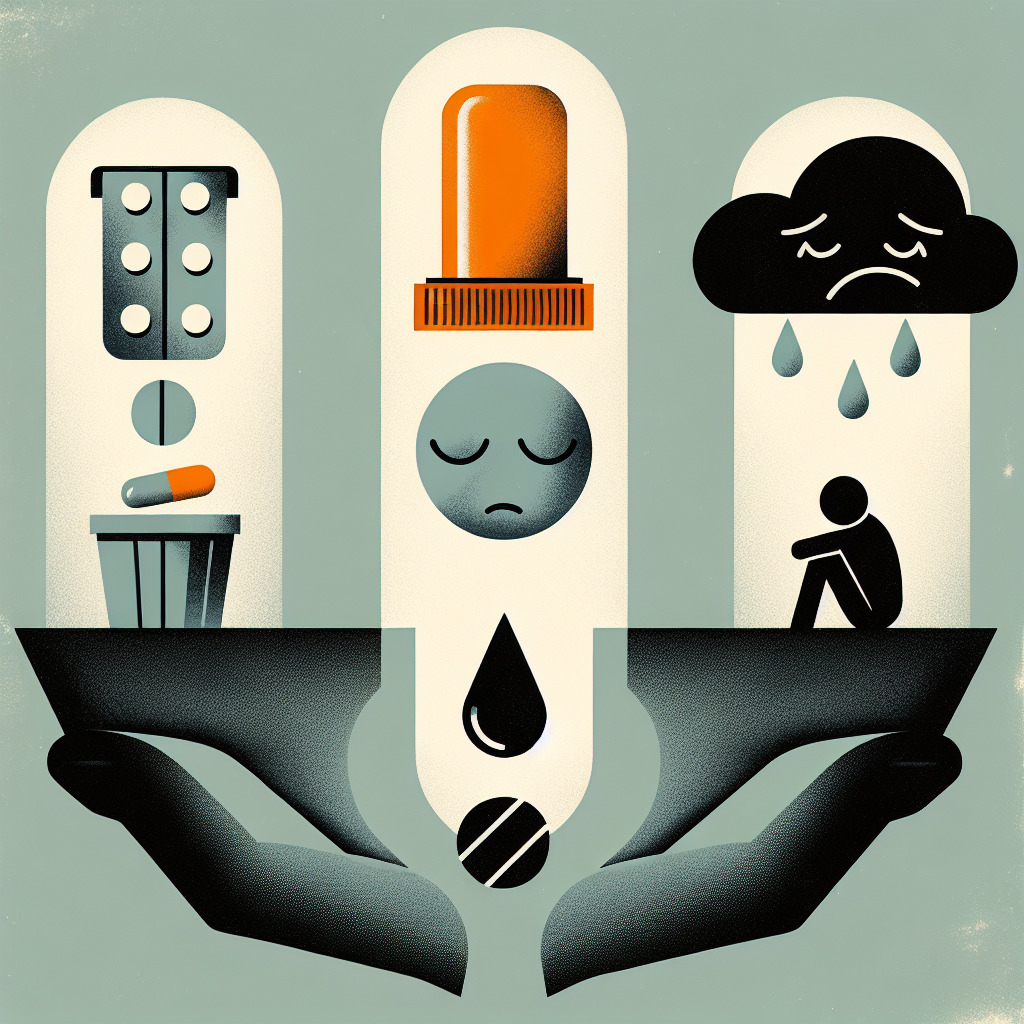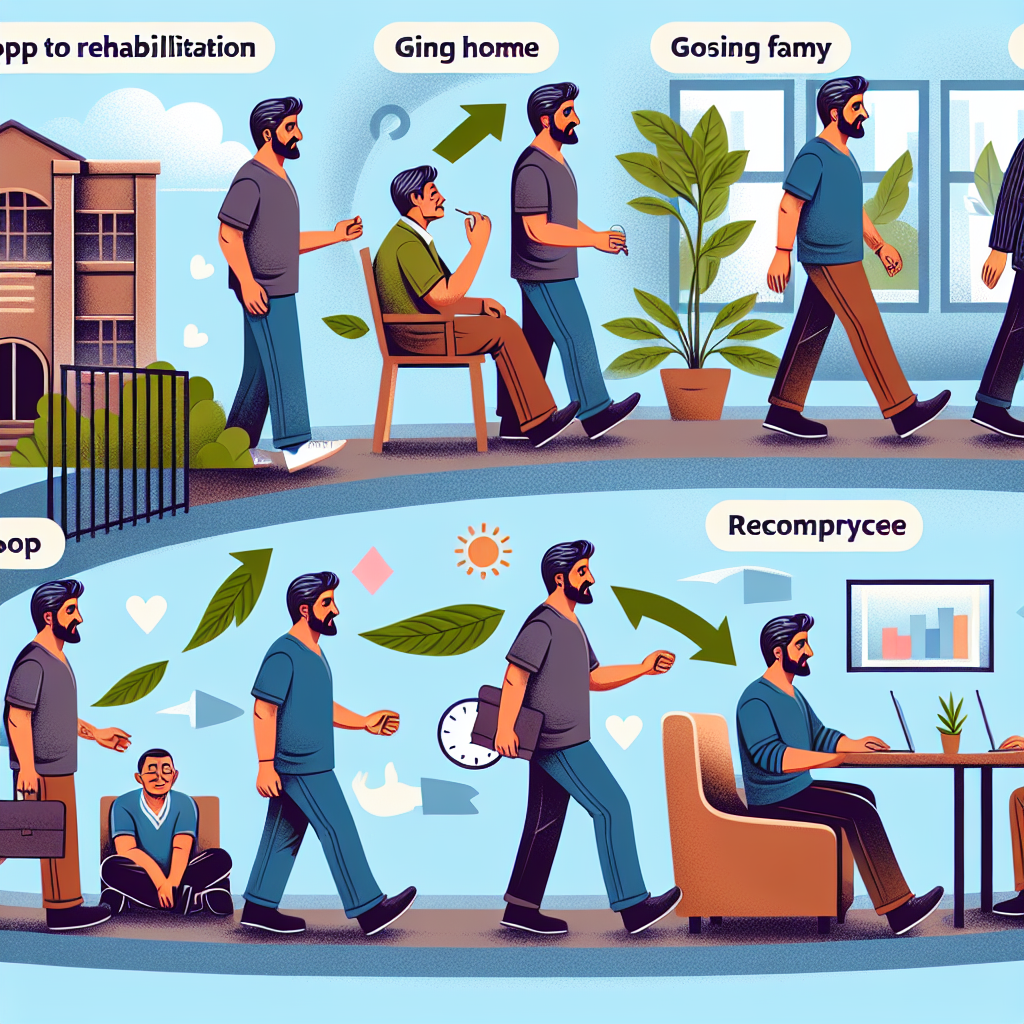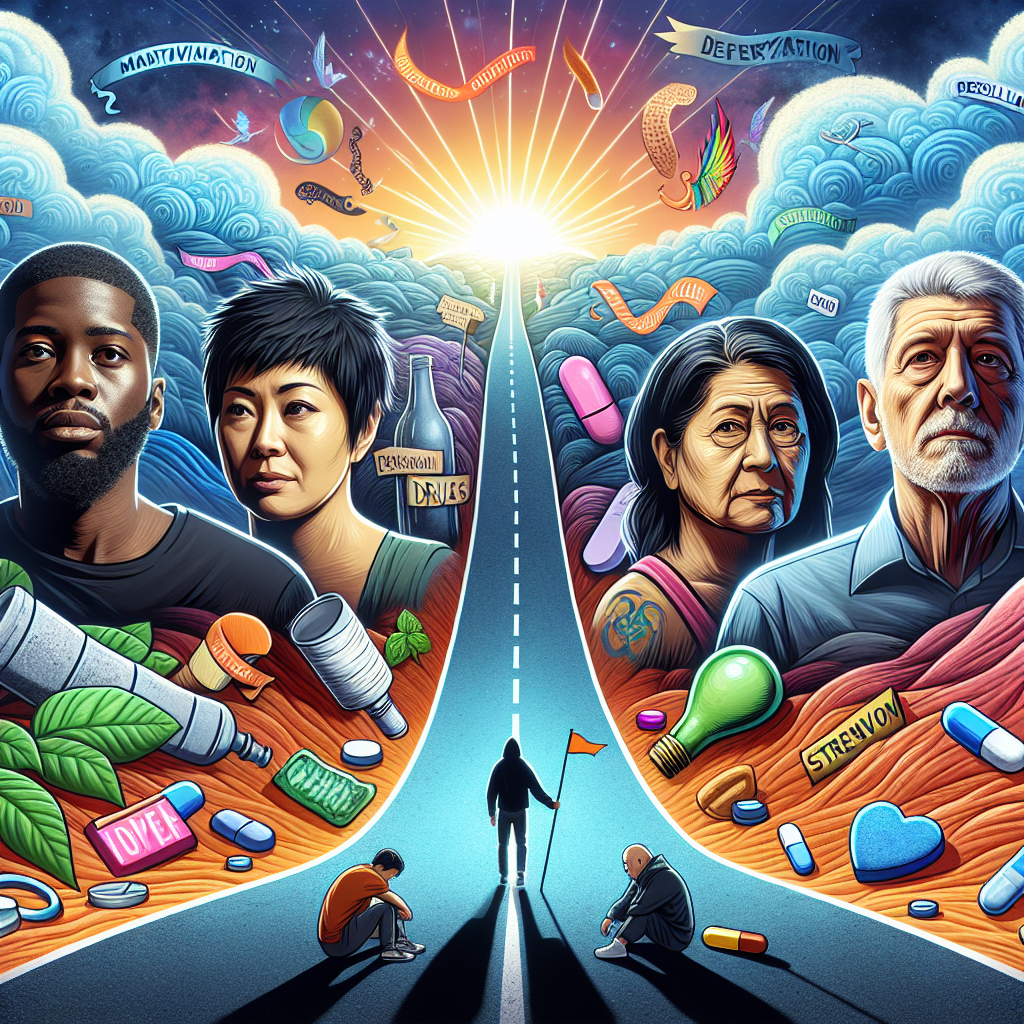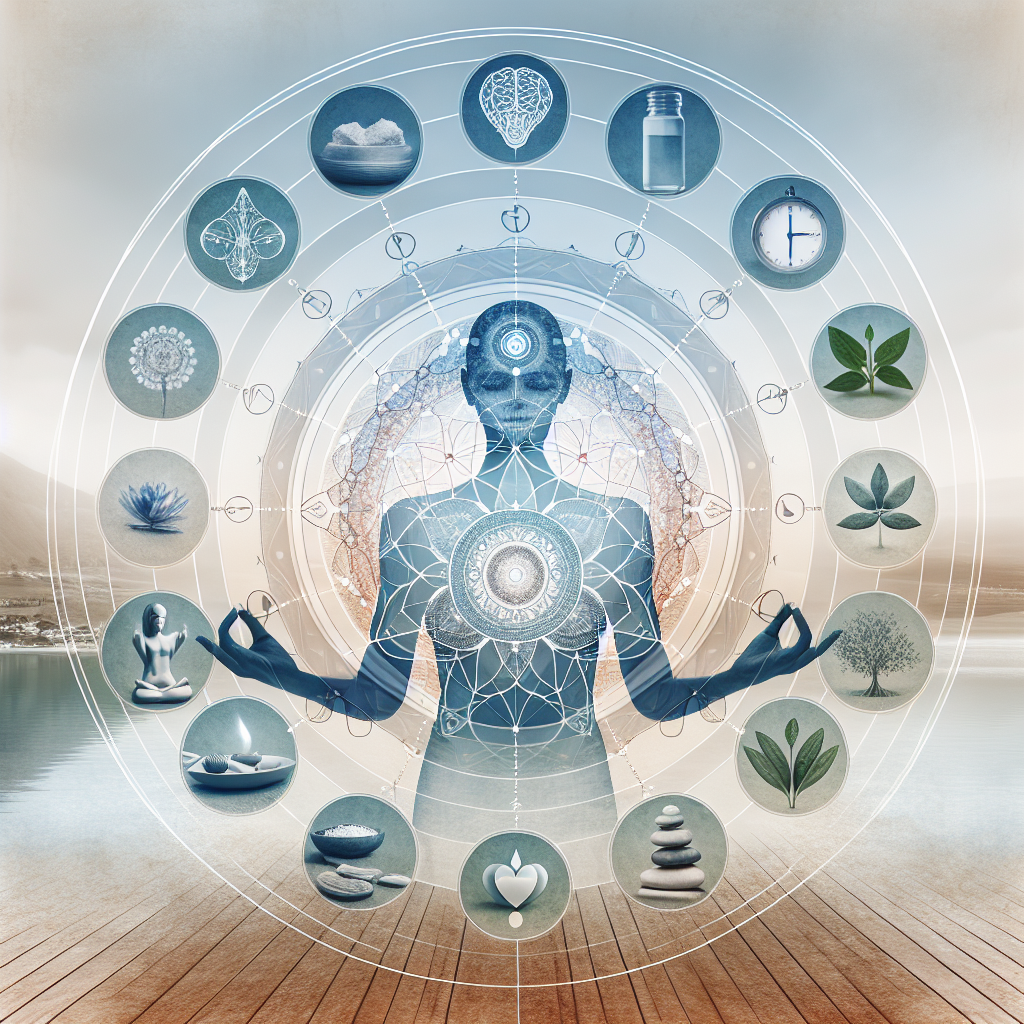-
Table of Contents

“Prescription Drug Abuse: A Pathway to Depression.”
Introduction
Prescription drug abuse can significantly impact mental health, potentially leading to the development of depression. When individuals misuse medications such as opioids, benzodiazepines, or stimulants, they may experience alterations in brain chemistry that affect mood regulation. The initial euphoric effects of these drugs can give way to dependency and withdrawal symptoms, which often include depressive states. Additionally, the social, financial, and legal consequences of prescription drug abuse can exacerbate feelings of hopelessness and despair. Understanding the link between prescription drug abuse and depression is crucial for developing effective prevention and treatment strategies.
The Link Between Prescription Drug Abuse and Depression: Understanding the Connection
Prescription drug abuse is a growing concern in today’s society, affecting individuals from all walks of life. While the immediate dangers of misuse, such as overdose and physical dependency, are well-documented, the long-term psychological impacts are often overlooked. One of the most significant and insidious consequences of prescription drug abuse is its potential to lead to depression. Understanding this connection is crucial for both prevention and recovery.
To begin with, it is essential to recognize that prescription drugs, particularly opioids, benzodiazepines, and stimulants, have powerful effects on the brain’s chemistry. These medications are designed to alter neurotransmitter activity to alleviate pain, anxiety, or attention deficits. However, when taken inappropriately or in excessive amounts, they can disrupt the brain’s natural balance. This disruption can lead to a range of mental health issues, including depression.
Moreover, the cycle of abuse itself can contribute to depressive symptoms. Individuals who misuse prescription drugs often experience a temporary sense of euphoria or relief from their symptoms. However, as the effects of the drug wear off, they may find themselves feeling worse than before. This phenomenon, known as the “rebound effect,” can create a vicious cycle where the individual continually seeks out the drug to stave off these negative feelings, only to find themselves sinking deeper into depression.
In addition to the biochemical and cyclical aspects, the social and emotional consequences of prescription drug abuse cannot be ignored. Many individuals who struggle with substance abuse face significant stigma and isolation. They may lose relationships, employment, and a sense of purpose, all of which are critical components of mental well-being. The resulting feelings of loneliness and hopelessness can exacerbate or even trigger depressive episodes.
Furthermore, it is important to consider the role of underlying mental health conditions. Many people who abuse prescription drugs do so in an attempt to self-medicate for untreated or inadequately treated mental health issues, such as anxiety or chronic pain. While the drugs may provide temporary relief, they do not address the root cause of the problem. Over time, the unresolved issues can worsen, leading to a more profound and persistent state of depression.
Despite these challenges, there is hope for those struggling with both prescription drug abuse and depression. Comprehensive treatment approaches that address both the substance abuse and the underlying mental health issues are essential. This often involves a combination of medication-assisted treatment, psychotherapy, and support groups. Cognitive-behavioral therapy (CBT), in particular, has been shown to be effective in helping individuals develop healthier coping mechanisms and break the cycle of abuse.
Additionally, fostering a supportive environment is crucial for recovery. Friends and family members can play a vital role by offering encouragement and understanding, rather than judgment. Community resources, such as support groups and rehabilitation programs, can also provide a network of individuals who understand the unique challenges of overcoming prescription drug abuse and depression.
In conclusion, the link between prescription drug abuse and depression is complex and multifaceted, involving biochemical, psychological, and social factors. However, by recognizing this connection and seeking comprehensive treatment, individuals can find a path to recovery and regain control over their lives. With the right support and resources, it is possible to overcome the dual challenges of substance abuse and depression, leading to a healthier and more fulfilling future.
How Prescription Drug Abuse Can Trigger Depression: Warning Signs and Prevention
Prescription drug abuse is a growing concern in today’s society, with far-reaching consequences that extend beyond physical health. One of the most insidious effects of this form of substance misuse is its potential to trigger depression. Understanding the warning signs and taking preventive measures can make a significant difference in mitigating this risk.
Initially, it is crucial to recognize that prescription drugs, while beneficial when used correctly, can have severe psychological repercussions when misused. Medications such as opioids, benzodiazepines, and stimulants are often prescribed to manage pain, anxiety, and attention disorders, respectively. However, when these drugs are taken in higher doses or for longer periods than prescribed, they can alter brain chemistry in ways that predispose individuals to depression.
The relationship between prescription drug abuse and depression is complex and multifaceted. On one hand, the misuse of these medications can lead to changes in the brain’s reward system, diminishing the natural production of neurotransmitters like serotonin and dopamine. This imbalance can result in feelings of sadness, hopelessness, and a lack of interest in activities once enjoyed. On the other hand, individuals who abuse prescription drugs may already be struggling with underlying mental health issues, which can be exacerbated by the misuse of these substances.
Recognizing the warning signs of prescription drug abuse and its potential to trigger depression is essential for early intervention. Some common indicators include taking higher doses than prescribed, seeking prescriptions from multiple doctors, and using medication for non-medical reasons, such as to cope with stress or emotional pain. Additionally, changes in behavior, such as increased isolation, mood swings, and a decline in personal hygiene, can signal the onset of depression.
Preventing prescription drug abuse and its associated risk of depression requires a multifaceted approach. Education is a critical component, as individuals must be informed about the dangers of misusing prescription medications and the importance of adhering to prescribed dosages. Healthcare providers play a vital role in this process by thoroughly discussing the potential risks and benefits of medications with their patients and monitoring for signs of misuse.
Moreover, fostering open communication between patients and healthcare providers can help identify and address any underlying mental health issues that may contribute to prescription drug abuse. Early intervention through counseling, therapy, and support groups can provide individuals with healthier coping mechanisms and reduce the likelihood of turning to medication misuse as a means of managing emotional distress.
In addition to professional support, building a strong social support network is invaluable in preventing prescription drug abuse and depression. Friends and family members can offer encouragement, understanding, and accountability, helping individuals stay on track with their treatment plans and avoid the pitfalls of substance misuse.
Ultimately, the key to preventing prescription drug abuse and its potential to trigger depression lies in a proactive and comprehensive approach. By recognizing the warning signs, educating individuals about the risks, and providing robust support systems, we can help mitigate the impact of this growing issue. Through these efforts, we can inspire hope and resilience in those affected, empowering them to lead healthier, more fulfilling lives.
Q&A
1. Can prescription drug abuse lead to depression?
Yes, prescription drug abuse can lead to depression as it can alter brain chemistry and negatively impact mental health.
2. What types of prescription drugs are commonly associated with causing depression when abused?
Commonly abused prescription drugs that can lead to depression include opioids, benzodiazepines, and stimulants.
Conclusion
Yes, prescription drug abuse can lead to depression. Misuse of medications, especially those that affect the brain’s chemistry, can alter mood regulation and lead to depressive symptoms. Additionally, the lifestyle and consequences associated with drug abuse, such as social isolation, financial problems, and health issues, can contribute to the development of depression. Therefore, it is crucial to use prescription drugs only as directed by a healthcare professional to avoid these risks.



